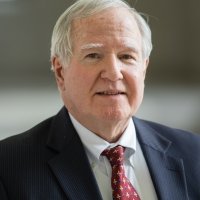Fixing the Financial System: What's Next?
On October 26, 2010 the Program on America and the Global Economy along with the Wilson Center on the Hill hosted an event, "Fixing the Financial System: What's Next" to review the recent economic recession and look towards the future of financial reform and regulation. The event centered on the recent publication of The Squam Lake Report: Fixing the Financial System which brought together fifteen leading economists to review the economic downturn and to provide recommendations for moving forward. One of the authors, Rene M. Stulz, Everett D. Reese Chair of Banking and Monetary Economics at The Ohio State University, joined the panel in discussing the recommendations and providing insight into the crisis. Joining Stulz was Mark Oesterle, Republican Chief Counsel and Deputy Chief of Staff for the Senate Committee on Banking, Housing, and Urban Affairs. Moderating the event was Kent Hughes, Director, Program on America and the Global Economy at the Wilson Center.
Stulz opened by outlining The Squam Lake Report and noted that all the recommendations made by the group were done by consensus and drew on the Squam Lake group's extensive mix of private and public sector experience. In the report, the Squam Lake Group described the collapse in the financial system, identified many of the causes, and made a series of specific recommendations directed at governments and financial institutions around the world.
Stulz highlighted the Report's call for a systemic regulator, a body that would oversee the entire financial system to identify potential weaknesses before they triggered a financial crisis. After considering various alternatives, Stulz reported that they settled on central bankers, the Federal Reserve in the United States as the best candidate to play that role. Each central bank should have an explicit mandate to oversee the entire financial system.
To support the role of the systemic regulator and to reduce risks in the financial system, Stulz and his colleagues also called for much greater information about prices and quantities of assets including derivative (financial assets that depend on the movement of stock, bonds, or other assets) positions. With a lag, much of the information should be opened to the public.
In the financial crisis that began in September 2007, many institutions did not have enough capital to back its borrowing. In response, Stulz pointed to the recommendation that banks should have larger capital requirements – requirements that would grow with the size of the institutions, how easy the asset is to sell (liquidity), and the degree to which the institution depended on short-term credit. Several of the institutions that faced real or near collapse, had depended heavily on overnight borrowing. When confidence collapsed, the credit disappeared.
The Squam Lake Report also took a serious look at the incentive structure of executive pay in financial institutions. Instead of proposing a cap on pay, the report left that to the private market. But, they did recommend that for systemically important financial institutions a significant portion of the pay of senior executives should be withheld for several years as a way of deterring short-term risky behavior.
Stulz also described the Report's thinking on how derivatives should be treated. In general terms, they urged that more of the derivatives be traded on clearinghouses that would facilitate resolution should financial troubles emerge. They did not want to banish tailored derivatives, seeing them has having a useful role in dispersing risk for many companies, but would require large capital reserves for institutions that held them.
After Stulz summarized many of the report's findings, Mark Oesterle, Republican Chief Council and Deputy Staff Director of the Senate Banking Committee gave a number of off-the record comments that added considerable insight into how recent legislation will help avert future economic crises. In sum, Oesterle noted the intent of the Dodd-Frank bill and the potential impact of the negotiations over the next Basel Accord that will propose global standards for banks. He also suggested that the country and the Congress is not done with financial reform.
Drafted by: Michael Darden
Kent Hughes, Director, Program on America and the Global Economy
Speakers

Former Director, Program on America and the Global Economy, Woodrow Wilson Center